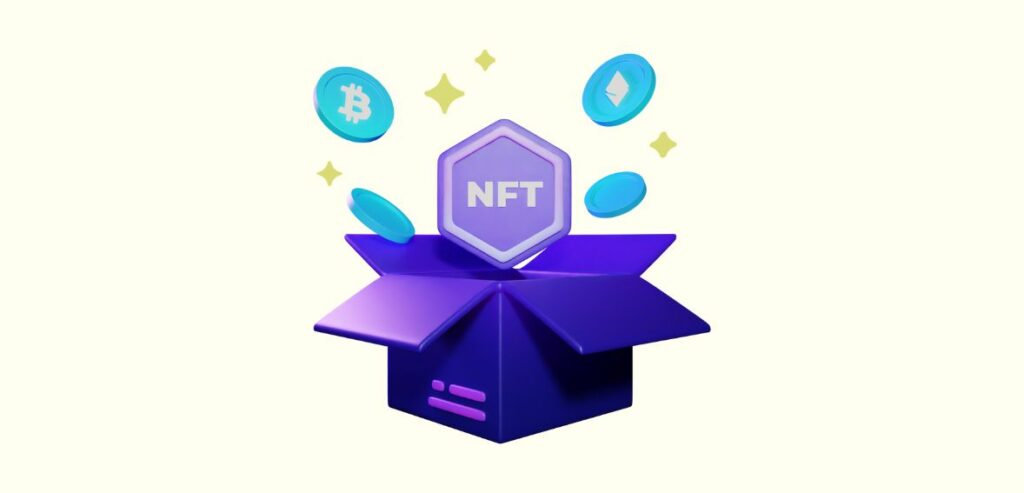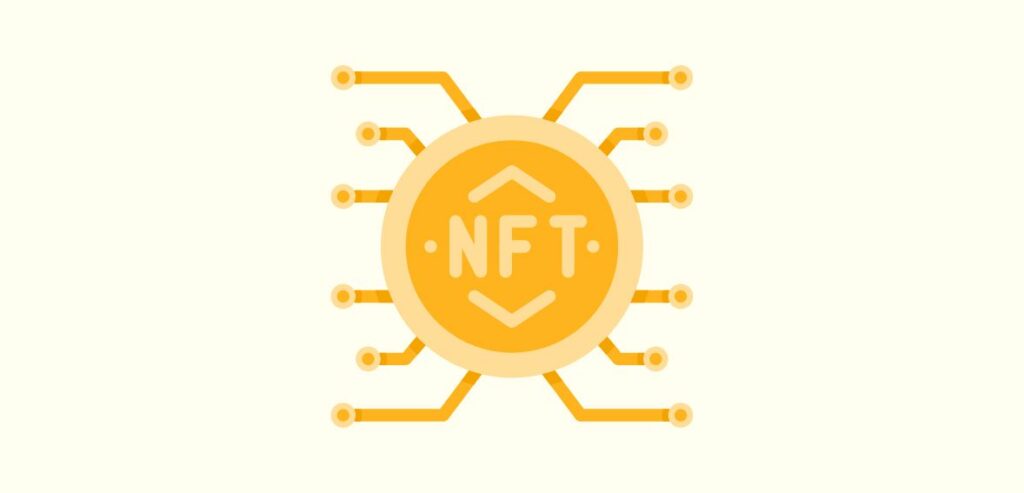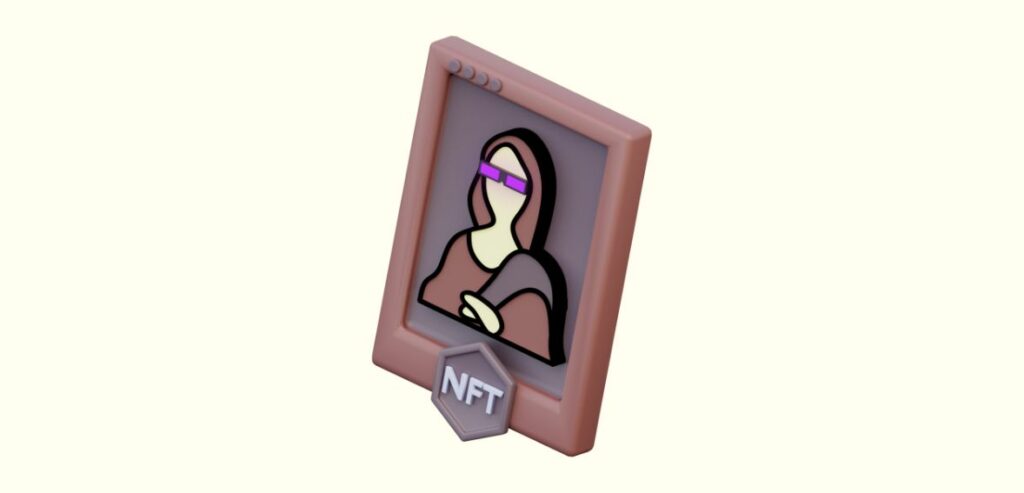NFTs have been around since 2014, but they became extremely popular when a crypto investor purchased the artwork of a famous digital artist, Mike Winkleman (aka Beeple), for a whopping $69.3 million.
Many people are surprised why people spend so much money on digital art and other collectibles.
NFTs aren’t just for art lovers; many other assets are being sold in NFT marketplaces. In this article, we’ll describe the essential details to help explain what NFTs are and how they work.
What is an NFT (Non-Fungible Token)?

Most people think that NFTs are digital pieces of art that can be sold on different NFT marketplaces. That’s true to some extent because NFTs have appeared to be a great solution for artists as they no longer need to visit the local art galleries to display their artwork.
They can now easily display their masterpieces on different NFT marketplaces in the comfort of their home. The reason why art lovers are showing interest in NFTs is that they’re helping with eliminating the problem of fake collectibles.
However, the NFTs aren’t just limited to the artworks; they are a broad industry. So, we would describe NFT as a digital asset that can be sold online, but it’s completely different from the eCommerce industry.
In the eCommerce industry, sellers can sell multiple models of the same product at the same price. But that’s not the case with NFTs. An NFT is a unique product with a specific code, and there’s only one available at a time.
Even if people make multiple copies of an NFT, there will only be one original NFT at a time. Once it’s sold, the buyer gets all the rights to that NFT. The original NFT can easily be verified by the code generated by the system at the time of the trade.
The statistics show that investors have spent over $174 million on NFTs since November 2017. And the journey has just started. We may expect to hear more interesting news from NFT marketplaces in the future.
Some virtual real estate companies are also planning to use this marketplace to buy and sell virtual properties. An NFT is a sales deed that determines that an asset belongs to a particular person. The interesting part is that sellers can also sell physical assets on the NFT marketplaces.
They must create an NFT token for the asset following a specific process. Then, in just a few steps, they can place it at the auction.
NFTs Vs. Bitcoin
The programming of NFTs is almost similar to that of Bitcoin and other cryptocurrencies. But bitcoin and other cryptocurrencies are fungible, while NFTs aren’t.
This means that only one NFT with a digital signature is available. So, the value of an NFT can’t be equal to another NFT. And only the owner can determine its price if they ever wish to sell it.
On the contrary, millions of bitcoins are available at this time, and their value is equal. Bitcoin and other cryptocurrencies can be exchanged for currencies of the same value. However, this is not the case with NFTs because each NFT has its value.
How Do NFTs Work?

The NFTs work like smart contracts, where payment is automatically released to the sellers when the contract’s terms are met.
In the case of NFTs, the seller needs to set the price and other vital details before sending the NFT on a public ledger.
If you’re willing to sell an NFT, you must create a digital wallet with a reliable service provider. Then, you’re supposed to create an account on the NFT marketplace and connect it to your digital wallet. You’d have to update your profile information on the NFT marketplace before you could start selling the artwork, music, GIFs, or anything else.
Once your profile is complete, you can submit your NFT for sale. While submitting the NFT, you’re supposed to add essential information about that asset. The seller can either sell the NFT for a fixed price or can place it on auction. The seller can also set the time limit if they want to display the NFT for a specific period.
The seller must pay the gas fee when submitting an NFT. A portion of the gas fee is transferred to the validators/miners as a reward for validating the transaction.
The system automatically generates a unique code when the NFT is submitted. Once the transaction is completed, the buyer gets the rights to the NFT. They can either keep the NFT in their collectibles or again sell it on the NFT marketplace.
The beauty of the NFT marketplaces is that the artists/musicians or other sellers can program royalties in the NFT. Thus, they can receive a certain percentage whenever the NFT is sold to someone.
Where to buy/sell an NFT?

Opensea, Rarible, and Foundation are some of the most popular NFT marketplaces where one can buy/sell NFTs. There are plenty of other NFT marketplaces where you can find the NFTs of your choice. These marketplaces have their own rules and regulations for displaying the NFTs. So, the sellers are recommended to go through those rules before submitting the NFT on a marketplace.
Are NFTs Worth the Investment?
Currently, social media influencers are making the most of the NFTs. But it may prove to be a great option for artists and art lovers once this hype is over. We’re swiftly moving towards a digital world. Many virtual real estate companies have already started selling assets on NFT marketplaces.
Some companies are even establishing virtual universes where humans will virtually perform certain tasks while sitting at their homes. The NFTs are expected to play a vital role in these areas. However, it’s still a risky trade and one should only invest the money that they can lose happily because if they couldn’t find a buyer for the NFT, they’d have to keep it forever.
Conclusion
NFTs are a new concept for most people but they’ve been around for many years. The NFTs are becoming really popular due to those unimaginable figures we’re seeing in the news every now and then. We’ve tried to explain the basic concept of NFTs in a simple manner. If you still have any questions about NFTs, feel free to drop a comment below.

